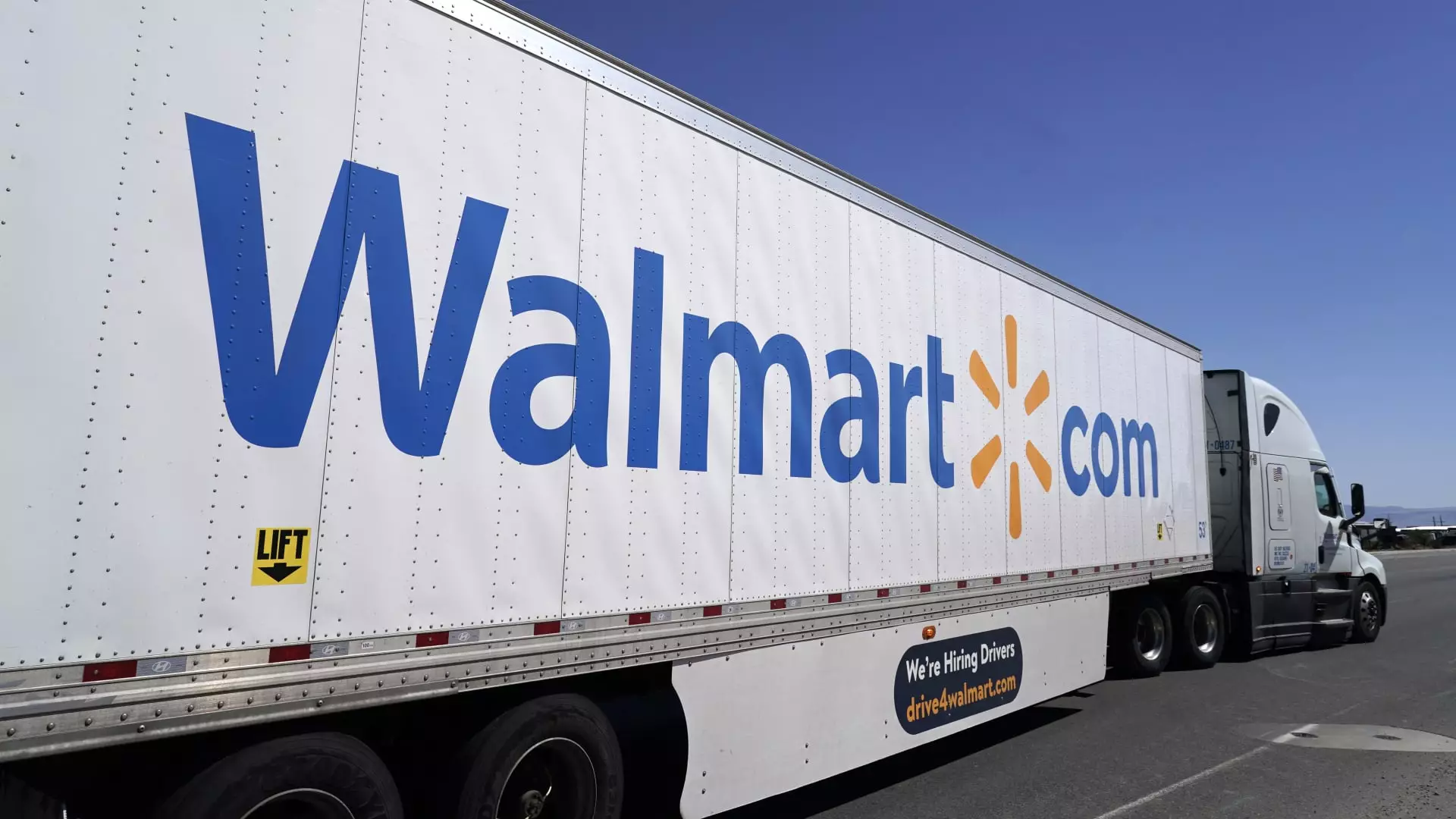The Consumer Financial Protection Bureau (CFPB) has launched a significant legal challenge against retail giant Walmart and technology firm Branch Messenger, focusing on their alleged mishandling of payment processes for delivery drivers. This case raises critical questions about worker rights and the responsibilities of companies in managing financial transactions.
On Monday, the CFPB accused Walmart and Branch Messenger of coercing delivery drivers into using unfavorable deposit accounts, which not only burdened them financially but also restricted their access to earnings. This lawsuit centers on accusations that these accounts, created without the drivers’ explicit consent, resulted in what the CFPB describes as “junk fees” totaling over $10 million, a substantial financial strain on the workforce involved in Walmart’s Spark Driver Program. The CFPB’s Director, Rohit Chopra, stated emphatically, “Companies cannot force workers into getting paid through accounts that drain their earnings with junk fees.” The assertion of exploitation paired with the scale of the issue—affecting more than a million drivers—paints a troubling portrait of corporate practices in the gig economy.
The complaint details a series of alleged deceptive practices wherein drivers were purportedly threatened with termination should they refuse to utilize the newly created Branch accounts. They were further misled regarding the timelines for accessing their wages. Such tactics raise ethical considerations about worker treatment, particularly within an economy increasingly reliant on gig workers who often lack traditional employee protections.
In response to the CFPB’s allegations, Walmart rejected the claims outright, stating that the lawsuit is based on “factual errors” and exaggerations. The spokesperson emphasized that the company was not given a fair opportunity to defend itself during the CFPB’s investigation. This denial of wrongdoing showcases a growing trend where companies publicly challenge regulatory bodies, raising issues of transparency and due process in investigations. Walmart’s stance reflects a broader narrative within the corporate world where negative publicity and allegations can have lasting impacts on reputation and trust, which are vital in retaining customer loyalty.
The technology company, Branch, also issued a vehement denial of the CFPB’s accusations, asserting that the lawsuit misrepresents both the law and the facts. Branch stated that it maintains a commitment to compliance and transparency, claiming that there were intentional omissions in the CFPB’s complaint. This back-and-forth between regulatory bodies and private companies is indicative of a significant battle in the financial landscape, where accountability and consumer protection are increasingly coming under scrutiny.
This situation involving Branch highlights a pressing issue in the gig economy where technology platforms are often caught in the middle, tasked with facilitating employment while adhering to regulatory standards. The challenge lies in aligning the interests of workers, companies, and compliance with federal regulations.
As the CFPB takes a firmer stance against companies like Walmart and Branch Messenger, there are broader implications for the gig economy as a whole. The outcomes of such lawsuits could set precedents that redefine payment structures and worker rights across various industries reliant on gig workers. Ongoing litigation may deter other companies from adopting similar payment mechanisms that could be perceived as exploitative, pushing them toward more equitable practices.
Moreover, this case forms part of a larger trend where the CFPB has proactively pursued legal actions against various financial service providers for mismanagement and improper handling of consumer accounts. The agency’s recent focus, including actions against large banks and payment networks, suggests a renewed emphasis on accountability within the financial industry that stakeholders must heed.
The lawsuit against Walmart and Branch Messenger thus serves as a critical intersection of employment rights, financial practices, and regulatory oversight in America’s rapidly evolving gig economy. As the CFPB works to ensure consumer protection, companies must navigate the complexities of governance and prioritize the well-being of their workers. The outcomes of these lawsuits will not only affect the companies involved but will also resonate throughout the gig economy, prompting a necessary reevaluation of practices that have come under fire. As the gig economy continues to grow, ensuring fair treatment should be at the forefront of this evolution.

